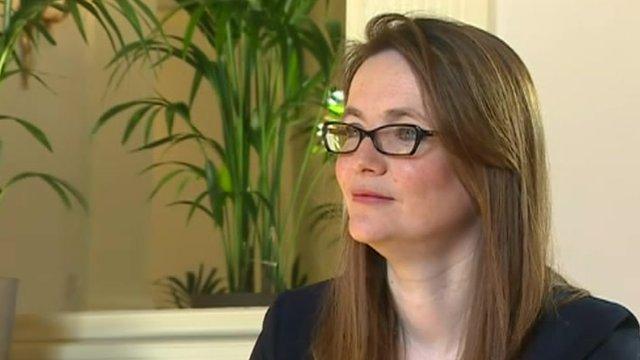Welsh election: Ask the Leader - Liberal Democrats
- Published
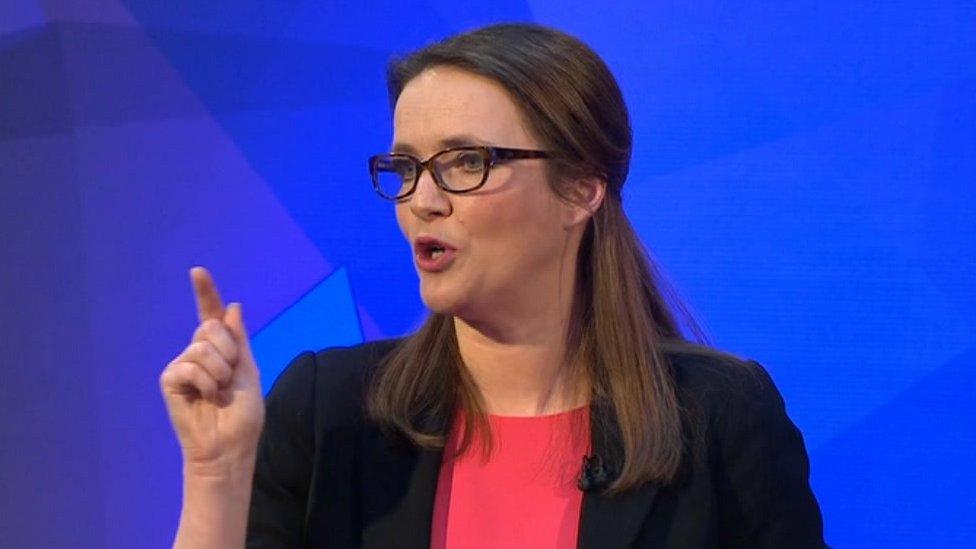
Welsh Liberal Democrat leader Kirsty Williams faced questions from an audience in Aberystwyth in the third of a daily series of live TV election specials.

Who is she?
Kirsty Williams has been a member of the Welsh Assembly since it was created in 1999 - at 28, she was one of the youngest AMs elected.
After the 2007 election, she successfully opposed her party entering into a so-called rainbow coalition with the Conservatives and Plaid Cymru in Cardiff Bay.
The episode caused divisions in the party - which she ended up leading, external some 18 months later.
Early on in her leadership, Ms Williams launched Project 31 - a plan which would see the Welsh Liberal Democrats aim to win a majority of seats in Cardiff Bay.
However, in her only assembly election campaign in charge so far - 2011 - the Lib Dems lost one of their six seats, and polls suggest they have a fight to keep the rest this time around.
Despite leading the smallest party in the assembly, Ms Williams can take credit for getting Welsh Labour ministers to deliver Lib Dem policies such as increased school funding for poorer pupils as part of a deal to support the government's budget.
Her reputation as a party leader may be enhanced, but her biggest challenge is making sure there are enough Lib Dem AMs re-elected to ensure she has a party group to lead for the next five years.

Question 1: What are you going to do to ensure there's a high quality rural health service in Wales?
Answer: Kirsty Williams said the key was to make rural Wales an attractive place for GPs and other medical professionals to live and work in, and to ensure services were well resourced.
Question 2: What would the Lib Dems do in order to ensure a strong rural economy and that all spending does not go to south Wales?
Answer: Ms Williams said she shared the questioner's frustration, saying that since devolution many rural residents felt "Cardiff was just as remote and non-understanding as London".
She called for a "fairer deal" for rural Wales and claimed to have won more money for Ceredigion and Powys than was originally set out in December's budget allocations for local councils.
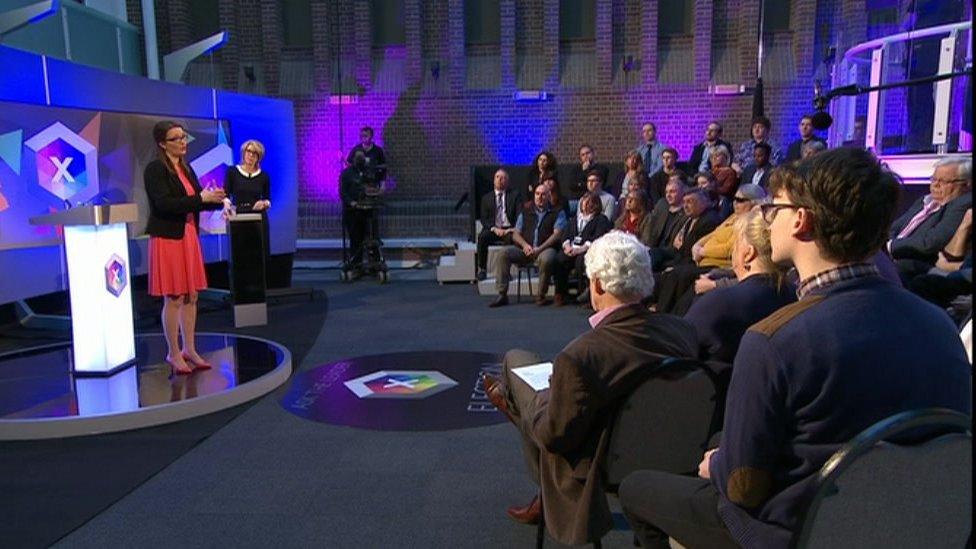
Question 3: How do you intend to make higher education more accessible for individuals from poorer backgrounds?
Answer: Ms Williams said she ensured the Welsh Government provided a pupil deprivation grant to support the education of poorer youngsters. The Welsh Lib Dems would also provide student living grants of £2,500 a year instead of the current tuition fee subsidies.
Asked why anyone should trust Lib Dem promises on student finance, she said: "I can't get away from the terrible mistake my party made in the coalition in Westminster. We made a promise [not to raise tuition fees] which we could not keep, and that let people down."
Ms Williams said all she could do was offer a policy she thought was affordable.
Question 4: Would you be prepared to enter a coalition government with the Welsh Conservatives in the assembly?
Answer: Ms Williams said she was "not in a hurry" to enter a formal coalition with any party, but would have to work with the result the voters delivered. Whether in a formal coalition or not, the Lib Dems would use their influence to push their policies on boosting rural health services, cutting class sizes and creating an opportunity economy, she added.
Question 5: Where do you see yourself in five years' time?
Answer: In the closing moments of the programme, Ms Williams said she would love to be talking about delivering more houses for poor people, and a "renaissance in our community hospitals and bringing services back to rural areas, not taking them away".

Still to come
Thursday 14 April - Plaid Cymru leader Leanne Wood in Aberystwyth
Friday 15 April - Welsh Labour leader Carwyn Jones in Llangollen
Shown previously
Monday 11 April - Welsh Conservative leader Andrew RT Davies in Swansea
Tuesday 12 April - UKIP Wales leader Nathan Gill in Swansea

Ask the Leader can be seen on BBC One Wales at 19:00 BST each day and on the BBC iPlayer.
You can also follow the programmes via Twitter - @walespolitics, external
- Published13 April 2016
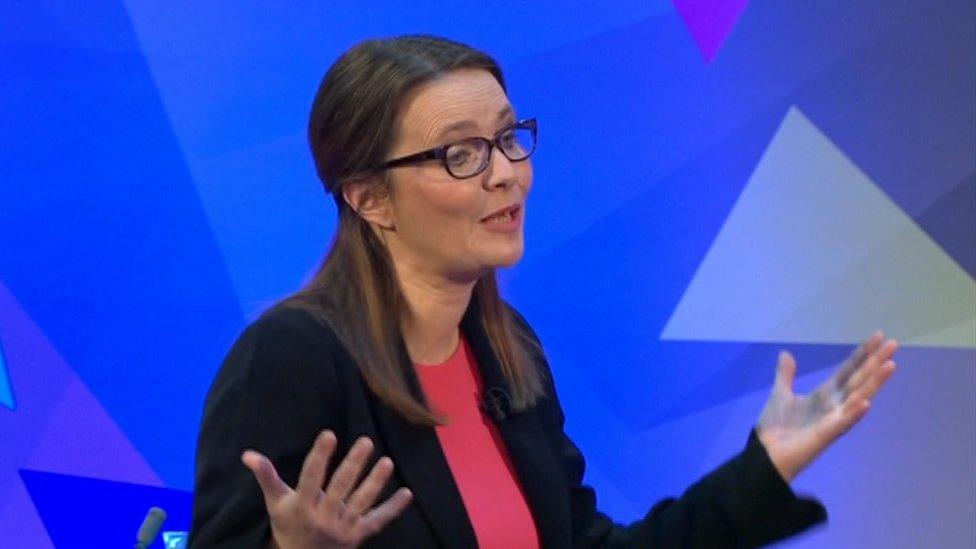
- Published31 March 2016
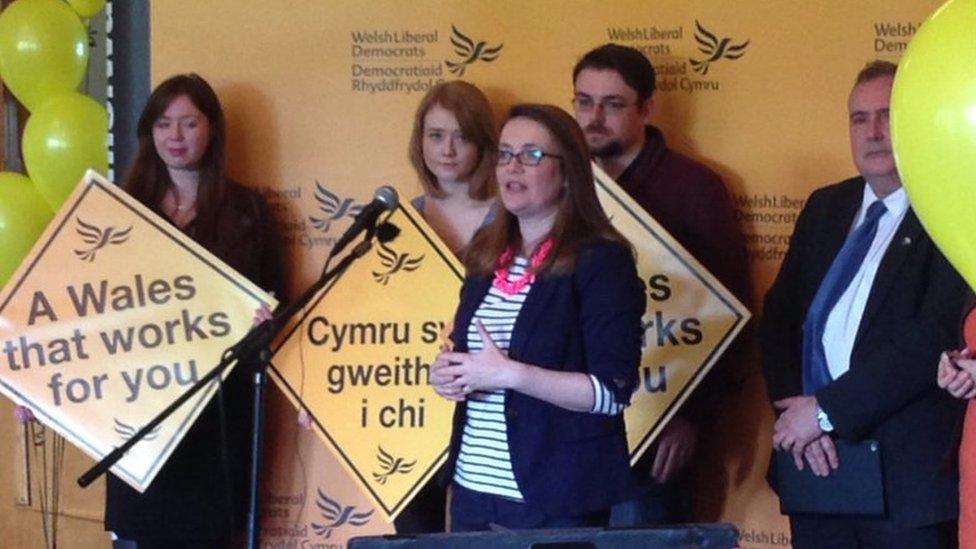
- Published25 February 2016
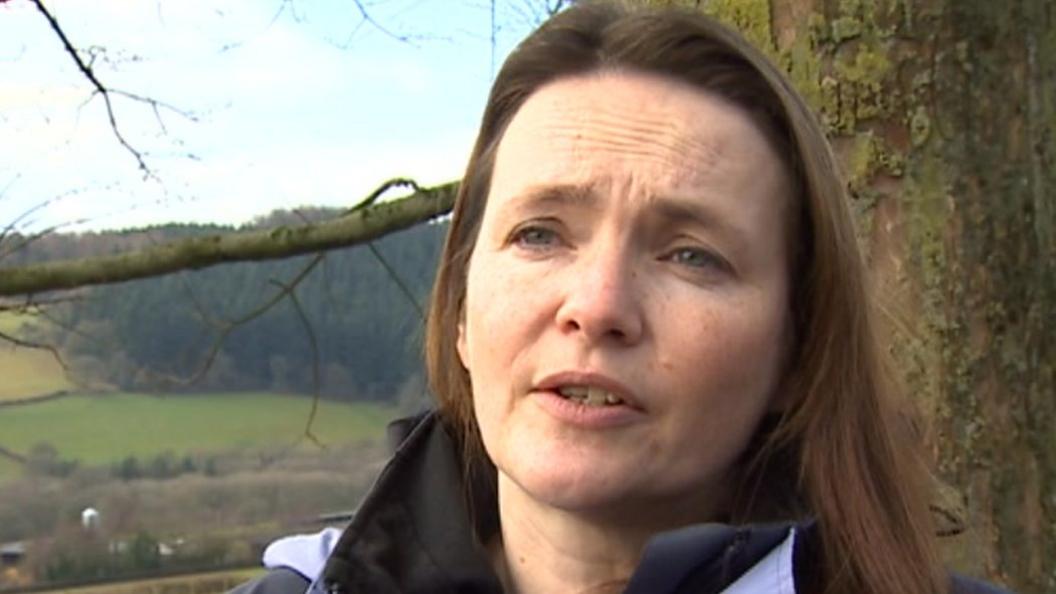
- Published17 February 2016
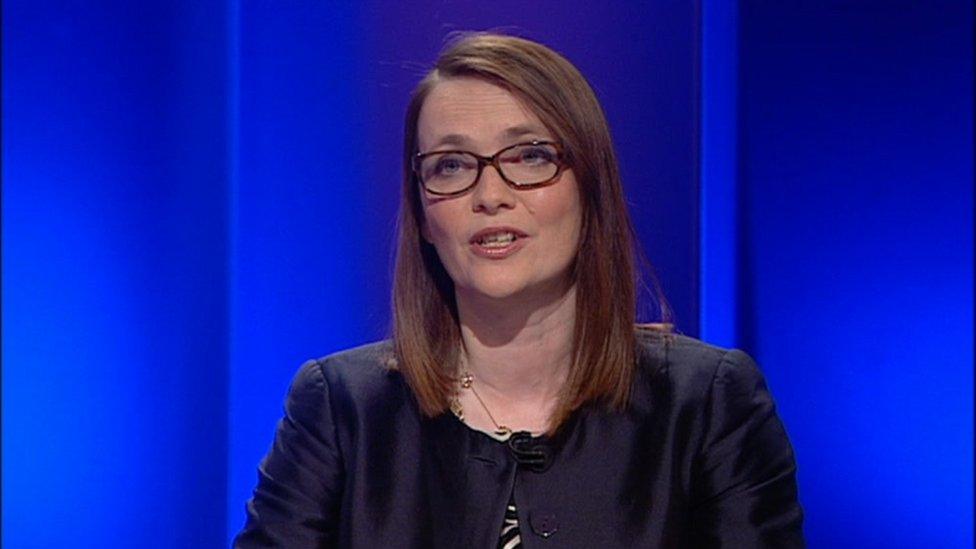
- Published7 February 2016
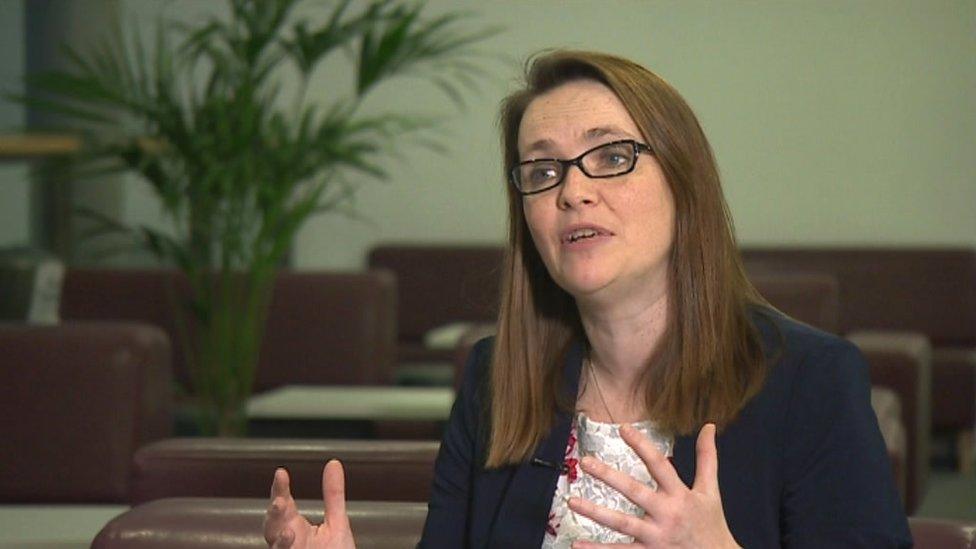
- Published6 April 2016
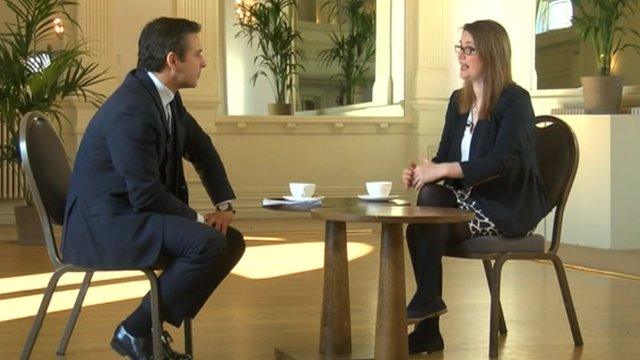
- Published6 April 2016
